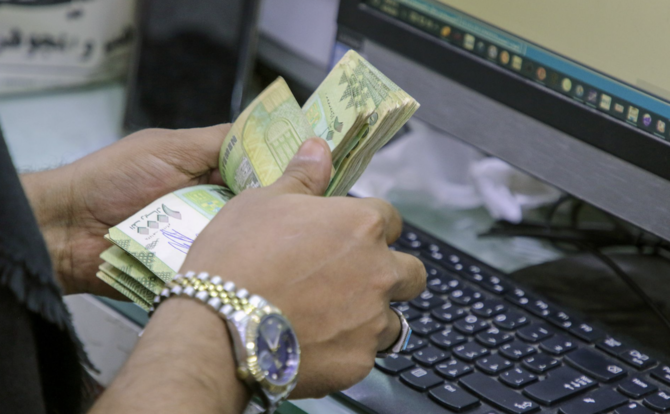AL-MUKALLA: The Yemeni riyal fell to a new low of 1,540 against the dollar in Yemeni government-controlled territories on Saturday, bringing it closer to its all-time low of 1,700 per dollar.
Money traders and media reports said that the Yemeni riyal breached a record low of 1,500 against the dollar for the first time in years, compared to a prior low of 1,400 in July.
Since early 2022, the Yemeni riyal has stabilized at about 1,200 per dollar in government-controlled areas, boosted by the formation of the internationally recognized Presidential Leadership Council, the return of the Yemeni government to Yemen’s interim capital of Aden, and Saudi Arabia’s injection of cash into Yemen’s Aden-based central bank.
The Yemeni riyal began depreciating in early 2013 in response to the Yemeni government’s repeated request for a financial bail-out after Houthi drone and missile attacks on oil installations depleted its financial reserves, as well as the impasse in peace talks to end the war in Yemen.
Saudi Arabia’s $1.2 billion funding aid helped the Yemeni riyal to recover to 1,300 per dollar in early August, up from 1,400 in July.
The Yemeni riyal hit an all-time low of 1,700 per dollar in late 2021.
People and local traders in government-controlled areas have reported an increase in the cost of fuel, transportation and vital products as a result of the riyal’s fast devaluation during the past few months.
The riyal’s new record low occurred just days after the central bank pledged to take all necessary measures to stabilize the economy and limit the depreciation of the national currency.
In a statement issued following a board meeting in Aden on Wednesday, the bank stated that it would not use “under any circumstances” inflationary financing to cover government expenses, urging the Yemeni government to effectively collect revenues and deposit them into the bank, address imbalances that drain resources and work on improving Yemenis’ standard of living and services.
To combat the riyal’s depreciation, the central bank closed unlicensed money firms, ordered local banks to send their financial statements to the bank, ordered the replacement of the unofficial remittance system between exchange companies, and organized public auctions for selling the dollar to local traders.
The official riyal exchange rate is 1,174. In early 2015, the riyal was trading at 215 per dollar.
In a recent report, the Yemeni government blamed the riyal’s depreciation and current economic meltdown on the Houthi military takeover of power in late 2014, their looting of central bank reserves, drone and missile attacks on oil facilities in Hadramout and, most recently, their ban on imports through government-controlled ports.
The government said in a report released last week that Yemen loses $5 billion in revenue annually as a result of the Houthi military coup and the subsequent war, and the country’s exports have decreased from $6.4 billion in 2014 to $1.7 billion last year.
The “deep” financial crisis in Yemen, according to the government report, caused a decrease in government investment programs, a reduction in private investment, a contraction of the GDP, the departure of foreign investors, the flight of local capital abroad in search of better opportunities, and the suspension of grant and loan programs.




























